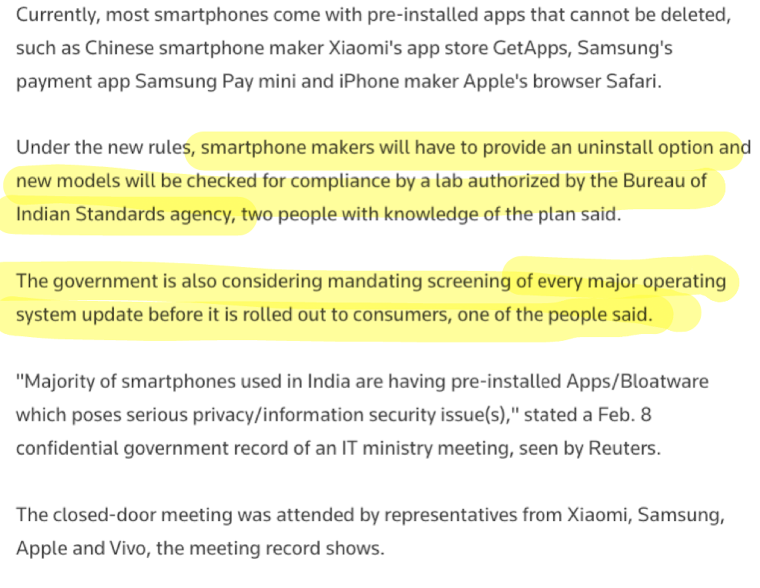The Government of India is stepping up its game to protect India user’s data, privacy, and preferences with two new proposed rules, being discussed.
First up, we have the “Uninstall option for pre-installed OEM Apps.” The EU has already mandated this through the Digital Market Act (DMA), which means companies must let users uninstall pre-installed apps. And now, India is following suit. This is welcome news for consumers (who want to remove bloatware), although most consumers are unlikely to remove them (“power of defaults”)
Next, we have “OS updates to be tested for compliance.” This is a significant step forward for Android users as they make up 99% of smartphone users in India. With so many different versions of Android out there, it’s essential to ensure that OS updates are compliant. However, this is no easy feat, and the agency responsible for this will have to work hard to make sure they get it right. Definitions such as “major update” could also cause confusion, so it’s crucial to get the details right.
While it is commendable that the Indian government is taking these steps towards consumer protection, they should also be careful not to over-regulate. It’s essential to find a balance between regulation and building state capacity for enforcement to avoid long turnaround times. Otherwise, the effects could be the opposite of what the government wants, and consumers’ choices may be harmed through delayed smartphone releases, delays in critical patches etc.


